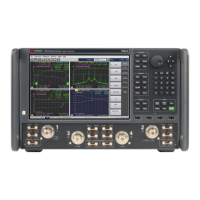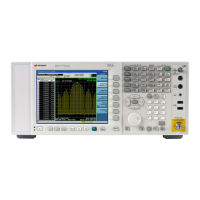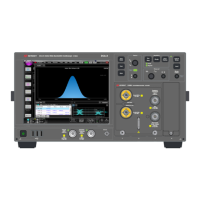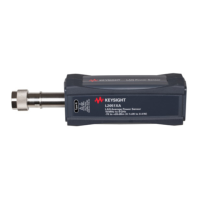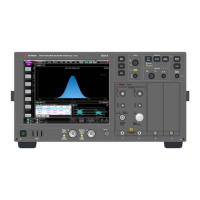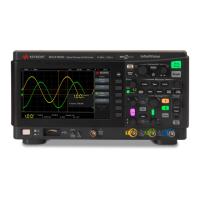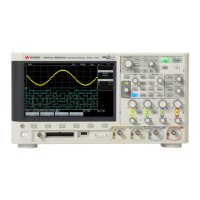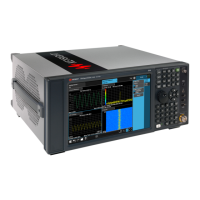6 Input/Output
6.9 Calibration
Option # Description
–
In instruments without EP0 optimizes phase noise for small
frequency offsets from the carrier
"Best Wide-
offset" on page
2208
2 Optimizes phase noise for wide frequency offsets from the carrier
"Fast Tuning"
on page 2208
3 Optimizes LO for tuning speed
"Best Close-in"
on page 2207
4 or 1*
–
In instruments with EP0, emphasizes close-in phase noise
performance without regard to spur avoidance
–
In instruments without EP0, this setting is accepted but no action is
taken
"Best Spurs"
on page 2208
5
–
In instruments with EP0, emphasizes spur avoidance over close-in
phase noise performance
–
In instruments without EP0, this setting is accepted but no action
taken
Auto - Automatically selects LO (local oscillator) phase noise behavior to
optimize dynamic range and speed for various instrument operating
conditions
*Dependent on Option EP0 installation. See "Best Close-in" on page 2207 below.
The actual behavior varies somewhat depending on model number and option; for
example, you always get Fast Tuning by choosing Option #3, but in some models,
"Fast Tuning" on page 2208 is identical in effect to "Best Close-in" on page 2207.
Best Close-in
Without option EP0
:FREQ:SYNT 1
The LO phase noise is optimized for smaller offsets from the carrier, at the expense
of phase noise farther out.
The actual frequency offset within which noise is optimized is shown with in square
brackets, as this can vary depending on the hardware set in use. For example, in
some instruments this annotation appears as [offset <20 kHz]
With option EP0
:FREQ:SYNT 4
In instruments with Option EP0, the LO is configured for the best possible close-in
phase noise (offsets up to 600 kHz from the carrier), regardless of spurious products
that occur with some center frequencies. Because this is generally less desirable for
close-in measurements than the "Balanced" on page 2208 setting, parameter 1
selects "Balanced" on page 2208 in EP0 instruments, in the interests of optimizing
2207 Short Range Comms & IoT Mode User's &Programmer's Reference
